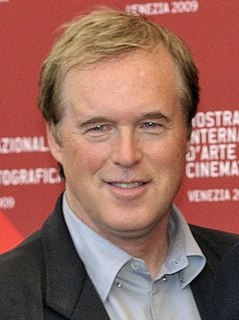Цитата Джойс Кэрол Оутс
Персонажи начинаются как голоса, а затем обретают присутствие, когда их видят в глазах других. Персонажи определяют друг друга в драматических контекстах. Встреча персонажей часто бывает очень увлекательной — из их встреч могут возникнуть непредвиденные истории.
Связанные цитаты
Герои комиксов — это персонажи, одетые в костюмы. Они не обязательно отличаются от других персонажей. Я думаю, что тенденция, которую вы видите, заключается в том, что фильмы по комиксам, по крайней мере, те, что делает Marvel, не содержат историй из комиксов. У них есть драматические человеческие истории.
Если роман написан на определенном языке с определенными персонажами из определенного сообщества и история очень хорошая или поучительная, то это произведение переводится на язык другого сообщества - тогда они начинают видеть через свой язык, что описанные там проблемы такие же, как проблемы, которые у них есть. Они могут идентифицировать себя с персонажами из другой языковой группы.
Природа актерского мастерства состоит в том, что у человека много персонажей, и он прыгает с одной кожи на другую как образ жизни. Иногда трудно точно знать, что думают все ваши персонажи одновременно. Иногда один из моих персонажей превосходит другого моего персонажа. Я пытаюсь заставить их всех гармонировать. Это адская работа. Это как водить автобус.
Сначала приходит идея. Затем персонажи начинают развиваться из ландшафта этой идеи. И затем, наконец, доминируют персонажи: сюжет — это просто функция того, что эти люди могут делать или кем могут быть. Все должно проистекать из их личностей; в противном случае это не будет эмоционально привлекательным или правдоподобным.
Люди приходят, люди уходят — они будут появляться и исчезать из вашей жизни, почти как герои любимой книги. Когда вы, наконец, закрываете обложку, персонажи рассказали свою историю, и вы снова начинаете с другой книги, полной новых персонажей и приключений. Тогда вы обнаружите, что сосредотачиваетесь на новых, а не на тех, что были в прошлом.
Что я делаю, так это даю Эннио Морриконе предложения и описываю ему своих персонажей, и тогда, довольно часто, он, возможно, пишет пять тем для одного персонажа. И пять тем для другого. А потом я возьму один кусок одного из них и наложу его на кусок другого для этого персонажа, или возьму другую тему от другого персонажа и перенесу ее в этого персонажа... И когда я наконец одену своих персонажей, затем он сочиняет.
Когда писатели стесняются себя как писателей, они часто держатся на большом расстоянии от своих персонажей, что звучит так, как будто они пишут энциклопедические статьи, а не рассказы. Их нерешительность в отношении физической и психологической близости может стать препятствием для жизненной фантастики. И наоборот, повествование, в котором читатели слышат тяжелое дыхание персонажей и ощущают их эмоциональную боль, уменьшает дистанцию. Читатели чувствуют себя настолько близкими к персонажам, что в эти волшебные моменты они становятся этими персонажами.





































